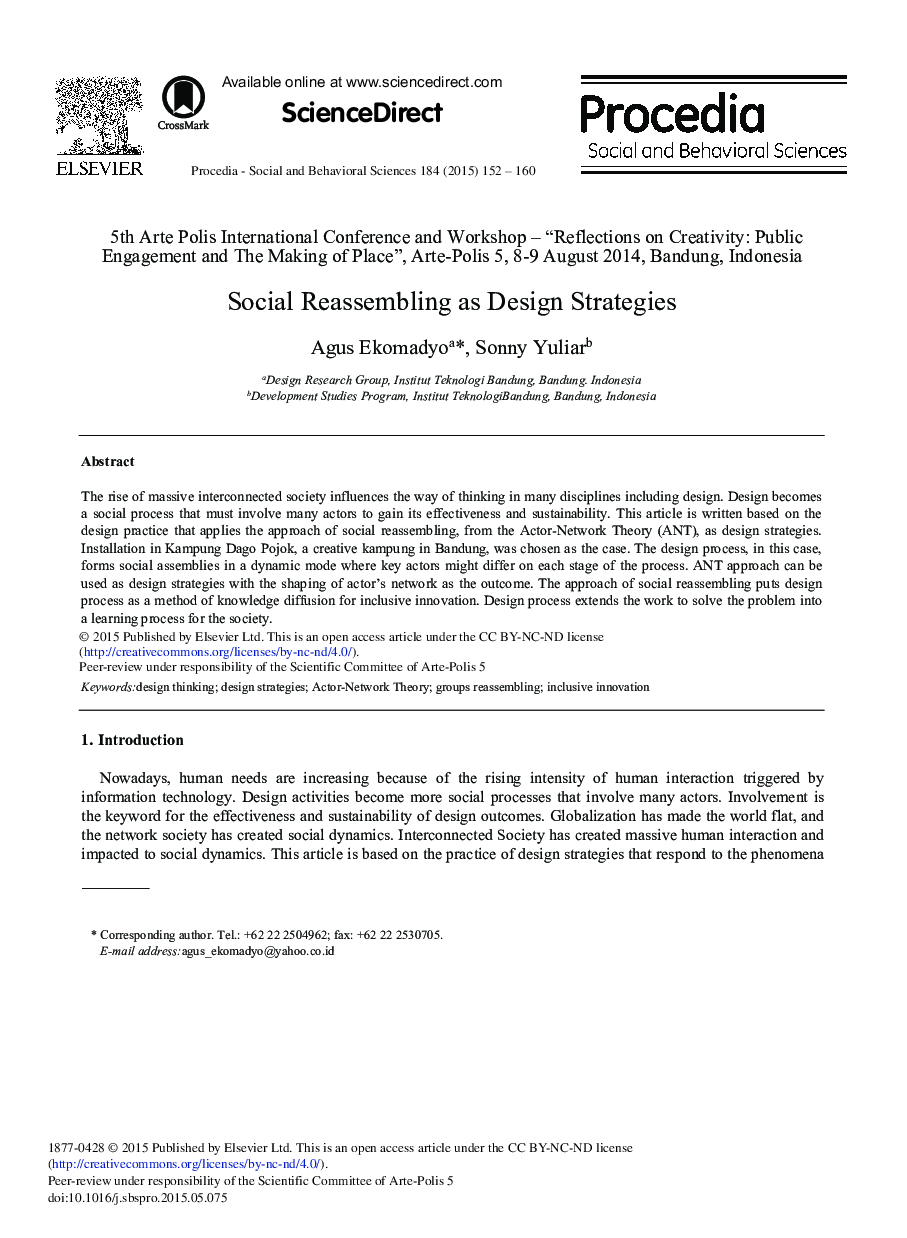| Article ID | Journal | Published Year | Pages | File Type |
|---|---|---|---|---|
| 1109976 | Procedia - Social and Behavioral Sciences | 2015 | 9 Pages |
The rise of massive interconnected society influences the way of thinking in many disciplines including design. Design becomes a social process that must involve many actors to gain its effectiveness and sustainability. This article is written based on the design practice that applies the approach of social reassembling, from the Actor-Network Theory (ANT), as design strategies. Installation in Kampung Dago Pojok, a creative kampung in Bandung, was chosen as the case. The design process, in this case, forms social assemblies in a dynamic mode where key actors might differ on each stage of the process. ANT approach can be used as design strategies with the shaping of actor's network as the outcome. The approach of social reassembling puts design process as a method of knowledge diffusion for inclusive innovation. Design process extends the work to solve the problem into a learning process for the society.
